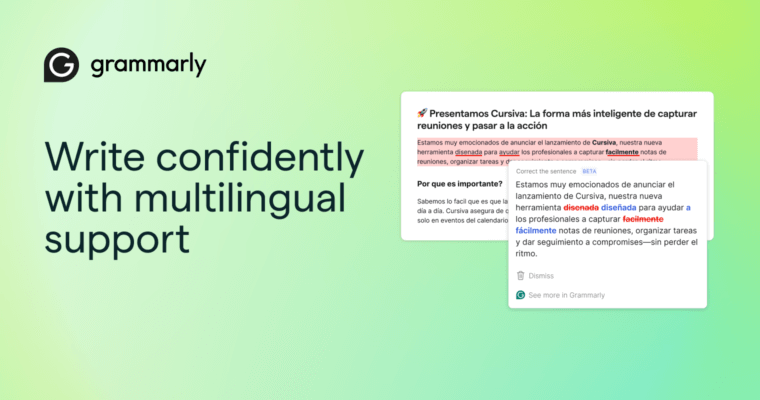
Nobody has ever finished reading an email and thought, “That was useful information, but I wish this message had been more tedious to read.” In fact, if the email was tedious enough, it’s possible that nobody finished reading it at all.
Dull, unengaging writing does a disservice to both the writer and the reader. Even if you have a great idea, even if your grammar is impeccable, it won’t matter a whole lot if your reader is too bored to make it past the first paragraph.
That’s why Grammarly offers suggestions that make your writing more fun to read. By choosing vivid words and varying the rhythm of your writing, you can keep your readers interested and engaged from the first word to the last. Read on to see how Grammarly can show you where some strategic rewording can make a real difference in your writing.
Bland words
Weak word choice: We’ll need to inspect each candidate’s résumé carefully.
Better: We’ll need to scrutinize each candidate’s résumé.
Weak word choice: Want to grab lunch? I’m really hungry.
Better: Want to grab lunch? I’m ravenous.
Dani wants to connect with Tyler to land her dream job.
Here’s how a well-orchestrated tweet kickstarts her career in music journalism. #HelpingYouConnect pic.twitter.com/fLyQStAdK2
— Grammarly (@Grammarly) August 12, 2019
Overused words
Repetitive word choice: An algorithm change can be an opportunity for your company to explore a change of strategy.
Better: An algorithm change can be an opportunity for your company to explore a shift in strategy.
Monotonous passages
Monotonous sentences: Sam enjoys phonecalls. Gabe prefers texting. Mary favors handwritten letters. They all like talking to each other in person.
Better: While Sam enjoys phonecalls and Gabe prefers texting, Mary favors handwritten letters. All three of them, however, like talking in person.
![]()






